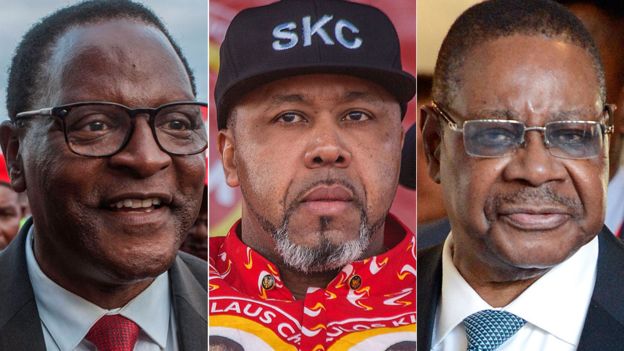‘Malawi Supreme Court disagrees with the approach taken by Zimbabwean Court in Nelson Chamisa v Emmerson Mnangagwa.’
Early this year, the High Court in Malawi ruled that the country’s May 2019 polls that saw incumbent President Peter Mutharika declared the winner were null and void.
The polls were allegedly marred by irregularities. The verdict resulted from a court challenge filed by Saulos Chilima, leader of the opposition United Transformation Movement Party, and Lazarus Chakwera, leader of the Malawi Congress Party.
The court ruled in favour of the opposition and called for fresh elections within 150 days and also reinstated former Vice President Saulos Chilima. Meanwhile, Malawi’s Constitutional Court also threw out an appeal by Mutharika to suspend the enforcement of a historic annulment of the last presidential elections.
However, Mutharika had some hopes still live, as the judgment could be appealed to the Supreme Court, although the Malawi Electoral Commission’s lawyer, Kalekeni Kaphale, at that time said the commission had yet to decide.
Finally, Mutharika appealed to the Supreme Court against a landmark decision by the Constitutional Court to nullify the results of the disputed May 21 election.
Malawi’s Supreme Court on Friday 8 May 2020, ruled unanimously in favour of carrying out fresh presidential elections on 2 July after the electoral commission appealed the January decision of the constitutional court that the May 2019 vote was invalid.
Although there was doubt that the court case, filed by main opposition Malawi Congress Party, would result in annulling the election.
In the first instance, it was clear that the elections were not free and the judiciary was faced by litmus test, according to some analysts.
Meanwhile, the Malawian court judgements have been viewed as historical and a beacon for democracy and separation of powers. Political analyst Elder Mabhunu says the impartiality of every country’s court is a source of protection and safety for its citizens.
“The Malawian example is what many nations in Africa and the world should be envying. “An impartial judiciary system is the beacon for democracy and the citizens’ source of protection,” he says.
He urges Zimbabwean courts which are said to be captured, to follow suit.
Another analyst agrees, says the judgement by the Supreme court, is a lesson for other African countries.
A Constitutional watcher, Idriss Nassah says:
“Malawi Supreme Court has disagreed with the approach taken by Zimbabwean Court in Nelson Chamisa v Emmerson Mnangagwa & Ugandan Court in Rtd. Colonel Kizza Besigye v Attorney General on how to determine election disputes.”
Meanwhile, following the ruling, people came out into the streets of Lilongwe to celebrate outcome of Supreme Court of Appeal which has upheld Concourt ruling. MCP president Lazarus Chakwera and Vice President Saulos Chilima were part of the celebrations













